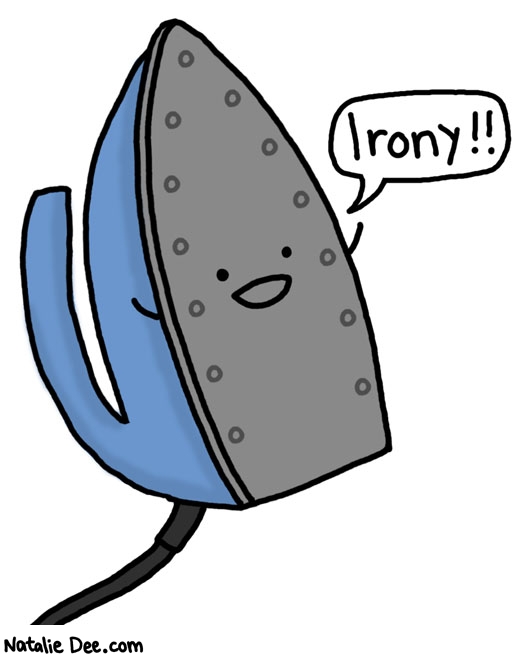Dramatic irony: Where the audience or reader is aware of something important, of which the characters in the story are not aware.
Situational irony: Where an event occurs which is unexpected, in the sense that it is somehow in absurd or mocking opposition to what would be expected or appropriate.
Verbal irony: Where the meaning of a specific expression is, or is intended to be, the exact opposite of what the words literally mean.
I can't remember (I could check) if I mentioned my great "volunteer" moment the other day in class. Who wants to turn in a story the next week? Anyone? Anyone?
ME! I want to! *waving arm* (Actually, I said, "I guess I will.")
So what happens? I write the next great American short story? NO! I get writer's block. The only time I seem to be cured is smack dab in the middle of something else. Like work.
And just in case you were wondering, I can't just grab a pen and WALK out...I have to wait.
I was able to come up with a semi-structured outline during my lunch break today. I have executed two-fifths of it thus far. And now I'm stuck--and have been for a good 37 minutes.
Make that 38. So I searched through my favorite webcomic for something to bring a smile to my face. (You can see it above) Then I decided to define some literary terms--ironic?
SITUATIONAL irony, actually. Gotta get it right!
The heroine of my current story is an assistant literature professor. You'd think I'd be writing the hell out of this one, NOPE! I'm over-thinking it instead.
Irony: spices up a literary work by adding unexpected twists and allowing the reader to become more involved with the characters and plot.
More involved. I need to get more involved in writing this story...(54 minutes).
~~J

2 comments:
I can't wait to read your story. (Can't wait to read mine either.) Good luck!
Tracy W.
Thank you, Tracy!
I just finished reading yours, actually.
~~J
Post a Comment